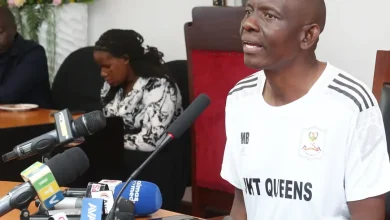Greens under siege: Lina Tour and fragile future of golf in Tanzania

MOROGORO: THIS weekend, as the Lina Tour brings excitement to Morogoro’s golf course, there’s more at play than just birdies and bogeys.
The tournament, one of Tanzania’s premier golfing events, draws professional players, elite amateurs and high handicappers (subsidiaries).
Sponsored by the family of Mzee Said Nkya in memory of his late wife, Lina a devoted golfer, the Lina Tour has evolved into a high-profile celebration of sport, legacy and community.
Yet, the very course hosting this spectacle is itself a survivor of Tanzania’s growing land-use tensions.
At a tournament hosted by Lugalo TPDF Golf Club and sponsored by KCB Bank last weekend, Government Spokesperson, Gerson Msigwa, offered a startling revelation. As the guest of honour, Msigwa disclosed that the Morogoro Golf Course was once at risk of being wiped out by a change in land use designation.
“There was an attempt by local authorities to change the land use plan,” Msigwa said. “The course was nearly lost. It took the intervention of then minister responsible for sports, Damas Ndumbaro, who is himself a golfer, to stop the process.”
That intervention saved more than just a golf course it preserved a public asset that now fuels tourism, community activity and economic uplift for the town.
The buzz in Morogoro this weekend is proof that golf isn’t just for elites or expats. Hotels are at capacity, restaurants are bustling and local businesses are thriving. The Lina Tour is showcasing the untapped potential of sports tourism to stimulate regional economies and spotlight lesser-known destinations.
But while Morogoro reaps the benefits, the broader state of Tanzania’s golf infrastructure remains precarious.
A widely circulated legend though never backed by documentary proof claims that former Prime Minister Rashid Kawawa once proposed converting Dar es Salaam’s Gymkhana Club into farmland as part of the ‘Kilimo cha Kufa na Kupona’ campaign to combat hunger.
The claim remains unverified, but the fact that it’s still repeated shows how golf courses are often seen as low-priority land even expendable.
The perception of golf as a luxury, rather than a longterm public good, continues to threaten the sustainability of courses across the country.
The Moshi town offers a sobering case study.
Once home to a full 18- hole golf course, Moshi’s facility has now been halved reduced to just 9 holes after developers slowly carved off sections of the land. The loss of half the course wasn’t marked by public outcry or major headlines, but the impact on local tourism, recreation, and sporting development is profound.
It’s a quiet erosion one that’s repeating itself in different forms across the country.
The idea that golf is only for the wealthy ignores the broader benefits of the sport. Beyond recreation, golf supports tourism, urban greening, youth development, and event hosting. Building a single 18-hole course today can cost upwards of 16m$, a reminder that once a course is lost, it’s not coming back easily.
Moreover, golf courses often serve as rare, protected green spaces in cities under pressure from unchecked development.
Msigwa praised President Samia Suluhu Hassan for incorporating sport into Tanzania’s Vision 2050, the country’s long-term development blueprint. For the first time in decades, sports infrastructure is being positioned as a national priority not an afterthought.
“Under her leadership, at least we are assured that our sporting infrastructure will not be encroached upon,” he noted.
This is encouraging. But it must be matched with proactive efforts not just preservation, but investment and protection.
Take the Dar es Salaam Gymkhana Club. Beyond its historical significance, the club is kept alive not by public funding, but by its dedicated members. Year after year, they pay annual subscriptions and green fees not for personal gain, but to ensure the course is maintained for public benefit, youth development, and the wider community.
In a country where sports infrastructure often suffers from neglect, this private commitment to the public good deserves recognition. Without these members, many courses would simply cease to function.
The Lina Tour is a celebration but also a subtle act of defiance. It asserts that golf, and the land it occupies, matters. It supports jobs. It inspires youth. It boosts economies.
ALSO READ: Over 150 golfers to compete in 2025 golf tourney
And it preserves urban balance in an era where open space is vanishing fast.
If Tanzania hopes to build a modern, inclusive, and sustainable sporting culture, golf courses must be treated not as expendable but as essential.
This will require more than speeches. It will require land title renewals, policy protections, planning alignment, and above all, public understanding of what is at stake.
Because once the bulldozers come, the fairways don’t grow back.





